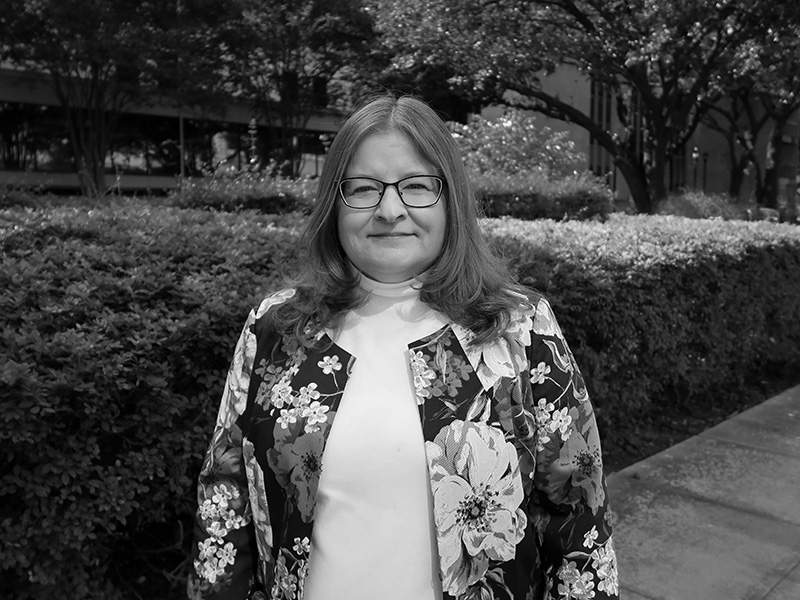Catherine Ambrose, PhD

Associate Professor and Director of Research
Department of Orthopaedic Surgery
For me it started when we were all told to work from home for a couple of weeks. We didn’t know how long it would last. Pretty quickly I learned my home office was not going to be sufficient, so I went back and forth to work and brought home some computer equipment so that I could transition my work from the lab. I had multiple students signed up to work in the summer, but the Summer Research Program was cancelled, so all of those projects were eliminated or suspended. We had cell culture experiments that we decided to abandon as it requires someone to be in the lab every day.
The research assistants in my lab transitioned to projects they could do from home – working on manuscripts, data analysis, programming. I learned to do online meetings better. We all learned how to connect with people online and keep track of how the research projects were going. All lectures could be done online. We had programs for incoming residents that were hands-on that had to be revised for the trainees. It was chaotic at the beginning, but we learned working virtually is possible, and it’s not as bad or inefficient as we thought it was going to be.
In some cases, a virtual presence had a positive effect. I am a member of the UTHealth Interfaculty Council, and we meet monthly at UCT. Depending on the members’ schedules, we would have 75 percent attendance. Now we have had meetings with 100 percent attendance because we can meet online. As chair of the Faculty Senate, it’s really helpful for our clinical faculty to have the online meetings because we have an attendance requirement. The virtual format has been a blessing for those in outside locations.
“It was chaotic at the beginning, but we learned working virtually is possible, and it’s not as bad or inefficient as we thought it was going to be.”
Our residents are back together in person again with the faculty meeting virtually – we all meet each Thursday morning, and they like that face-to-face interaction. The Department of Orthopaedic Surgery has switched to virtual away rotations, where we could have online meetings and conferences with students to get to know them. The plan is for us to able to host students whose medical schools do not offer orthopedic surgery.
Personally, the commuting and parking have been a challenge during the pandemic. I had been commuting in a vanpool that was disbanded and then carpooled with someone who went working from home full time. I came back to the Medical School Building in May, working part time. I will spend four days a week at the Medical School and one day working at home, and that works out. My research personnel share an office, so they are on an alternate schedule and rarely at the building at the same time. Parking at the Texas Medical Center has been a nightmare for so long, flexible schedules may be a way to solve that problem.
I think in the future for meetings, both locally and for national and international meetings, we will keep a hybrid formula of in-person and virtual. We also have seen a need to be more prepared – for the lab we had a limited amount of Lysol wipes, ethanol, and we can’t get access to a 1-millimeter syringe because it’s used for the vaccine. After things get back to normal, the world in general, and us specifically, we need to stockpile a few things.
